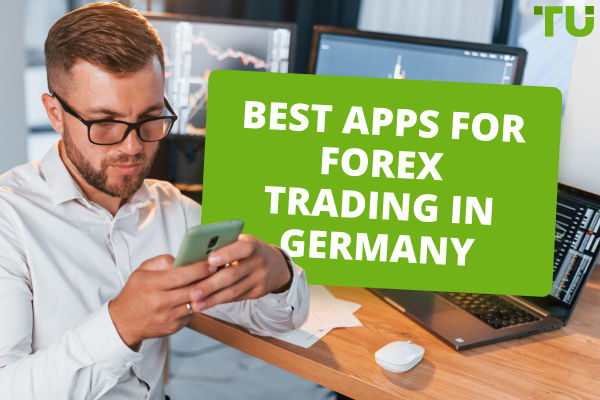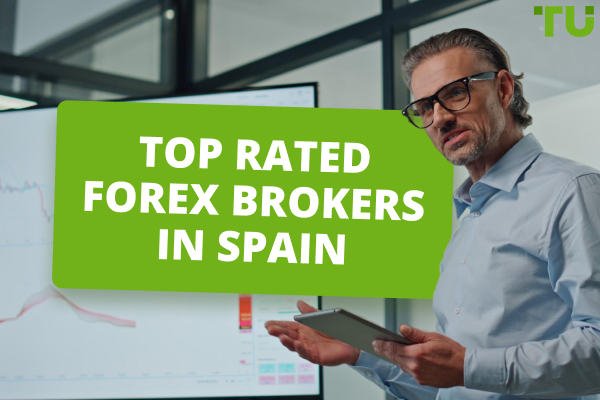How to Legally Start Forex Trading in Germany
-
Forex trading in Germany is legal and regulated.
-
Starting steps: Get educated, choose a licensed broker, and set up a trading platform.
-
Key regulations: BaFin oversight, KYC norms, capital and leverage restrictions.
-
Options: Local licensed brokers or international brokers.
-
Risk management is essential for navigating market volatility.
In Germany, the allure of Forex trading beckons many. Its promises of financial agility and market dynamism are compelling. This article serves as a guide for German traders. It answers key questions: Is Forex trading legal in Germany? How does one embark on this journey? Read on for comprehensive insights.
-
Is Forex trading available in Germany?
Yes, Forex trading is available and legal in Germany, operating under strict regulations enforced by financial authorities like BaFin.
-
How much do Forex traders make in Germany?
Earnings of Forex traders in Germany vary widely based on their skill, experience, and trading strategy. It's a field with potential for profit but also risks of loss.
-
Which Forex brokers are available in Germany?
Germany offers a range of Forex brokers, both locally licensed and internationally regulated. Brokers must comply with German financial regulations, ensuring a secure trading environment.
-
Do Forex traders have to pay tax in Germany?
Yes, Forex traders in Germany are subject to taxation on their profits. It is advisable to consult with a tax professional for accurate and current tax obligations related to Forex trading earnings.
Rules and Regulation
Forex regulation in Germany
BaFin is Germany’s financial regulator. This body issues licenses and monitors compliance by organizations. To obtain a license, there are requirements on the authorized capital, skills of employees, risk management, transparency, and funds storage.
Investor protection
The German Act WpHG protects investors. Germany is a member of MiFID II, which regulates all Forex brokers in the EU. Germany has an EdW Trader Insurance Compensation Fund, which compensates traders in case of broker’s bankruptcy for an amount up to €20,000.
Taxation
Profit from trade is taxed on a progressive scale. If the annual income is up to EUR 25,000, the rate is 15%. If the income is above EUR 25,000, the rate is 25%. Traders pay taxes themselves. Benefits and deductions are possible. Consulting with tax expert is recommended.
Best Forex brokers


How to start Forex trading in Germany?
Before you start Forex trading in Germany, educating yourself about the fundamentals of Forex trading is crucial. Familiarize yourself with market dynamics, trading strategies and risk management techniques. There are numerous online resources, webinars and courses available for beginners.
Here's a step-by-step guide to kickstarting your trading in Germany:
-
Choose a broker and open an account
-
Research: Start by researching brokers regulated either in Germany or by reputable international bodies.
-
Compare: Look at their fee structures, trading platforms, customer support, and educational resources. For detailed guidance on selecting a broker, read through our guide on How to choose a Forex broker wisely.
-
Open an account: Once you've chosen a broker, you'll need to open an account. This will involve providing personal information and meeting KYC requirements.
-
Set up platform and analyze the market
-
Platform Setup: Download and familiarize yourself with your broker’s trading platform. Most brokers offer demo accounts to practice without financial risk.
-
Market Analysis: Start analyzing the market. Learn to read charts, understand market indicators and follow global economic news.
-
Tools and Apps: Utilize trading apps for real-time market analysis and trading on the go. For recommendations on the top Forex trading apps, refer to our resource: Best Apps for Forex Trading in Germany.
-
Trade and control your risks
-
Start Small: Begin with small trades to understand market behavior and your own emotional responses to profit and loss.
-
Risk Management: Use stop-loss orders and only risk a small percentage of your capital on a single trade.
-
Continuous Learning: Keep educating yourself and staying updated with market trends and economic news.
Remember, Forex trading involves significant risk, and it's vital to approach it with caution and thorough preparation. Following these steps lets you set a strong foundation for your Forex trading journey in Germany.
Tips for beginner Forex traders in Germany
Entering the Forex market as a beginner in Germany can be both exciting and daunting. Here are some essential tips to help you navigate this journey with more confidence and understanding:
-
Start with a Clear Understanding of Forex Basics:
-
Grasp the fundamentals of Forex trading, including how the market operates, currency pairs and how economic factors influence currency values.
-
Utilize free educational resources like online courses, webinars and e-books specifically tailored for beginners.
-
Develop a olid Trading Plan and Stick to It:
-
A trading plan should include your investment goals, risk tolerance, trading strategies and criteria for entering and exiting trades.
-
Consistency is key. Stick to your plan and avoid making impulsive decisions based on emotions or market hype.
-
Stay Informed and Updated:
-
The Forex market is highly influenced by global economic events. Stay updated with financial news and learn how events like interest rate changes, political instability and economic reports affect the market.
-
Consider subscribing to financial news websites, following market analysts on social media or using financial news apps.
-
Manage Your Risks Wisely:
-
Never risk more than you can afford to lose. Use risk management tools like stop-loss orders to protect your investments.
-
Understand the concept of leverage and use it cautiously, as it can amplify both gains and losses.
Remember, Forex trading is not a guaranteed path to quick riches. It requires patience, discipline, and continuous learning. As a beginner, focus on building your skills and knowledge gradually, and approach trading with a realistic mindset.
About how much money you need to start trading Forex in Germany, what brokers are available, whether you need to pay taxes and other relevant information, read in the article: Forex trading in Germany: a comprehensive guide
Experienced traders who are ready to trade on funded accounts will surely find this article useful: Best Forex Proprietary Trading Companies in Germany
Summary
Forex trading in Germany offers a regulated and secure environment, vital for both new and experienced traders. Key to success in this market is a foundational understanding of Forex principles, selecting a reputable broker, and employing a well-thought-out trading strategy.
Risk management, through tools like stop-loss orders and cautious leverage use, is crucial to navigating the market's volatility. Staying informed about global economic events and trends is also important for making informed decisions.
Ultimately, success in Forex trading requires patience, discipline, and an ongoing commitment to learning and adapting to the market's dynamics.
Team that worked on the article
Vuk stands at the forefront of financial journalism, blending over six years of crypto investing experience with profound insights gained from navigating two bull/bear cycles. A dedicated content writer, Vuk has contributed to a myriad of publications and projects. His journey from an English language graduate to a sought-after voice in finance reflects his passion for demystifying complex financial concepts, making him a helpful guide for both newcomers and seasoned investors.
Dr. BJ Johnson is a PhD in English Language and an editor with over 15 years of experience. He earned his degree in English Language in the U.S and the UK. In 2020, Dr. Johnson joined the Traders Union team. Since then, he has created over 100 exclusive articles and edited over 300 articles of other authors.
Tobi Opeyemi Amure is an editor and expert writer with over 7 years of experience. In 2023, Tobi joined the Traders Union team as an editor and fact checker, making sure to deliver trustworthy and reliable content. The topics he covers include trading signals, cryptocurrencies, Forex brokers, stock brokers, expert advisors, binary options.
Tobi Opeyemi Amure motto: The journey of a thousand miles begins with a single step.









